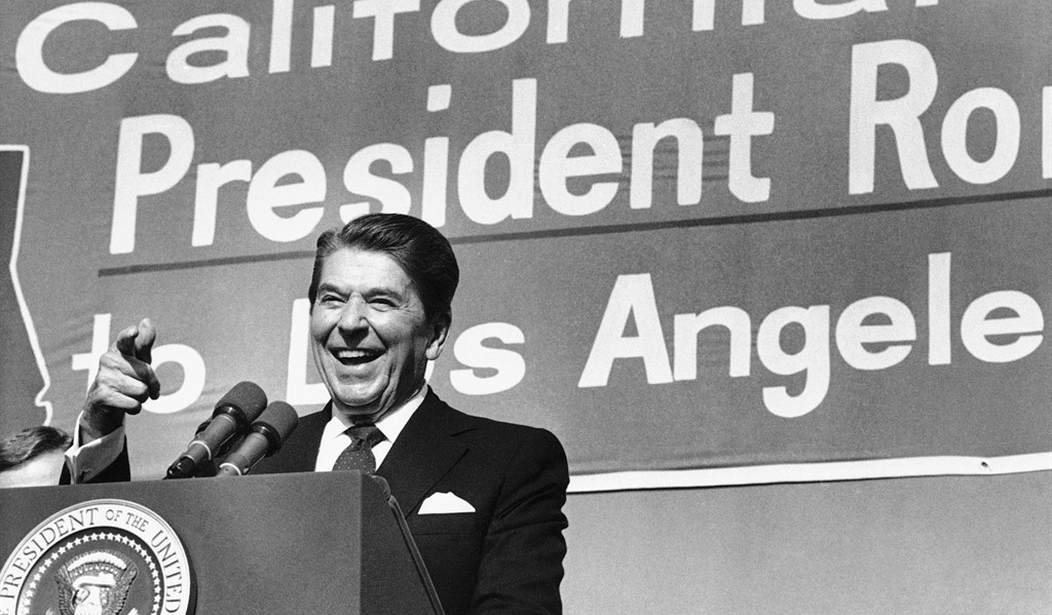Sixty years ago this week, Ronald Reagan delivered a speech in support of Barry Goldwater's presidential bid. It was dubbed "A Time for Choosing."
Re-reading the speech, or watching it on YouTube, is a reminder how little has changed in six decades. Some of the issues debated in 1964 are still being argued and unresolved today.
On taxes and spending, Reagan noted: "Thirty-seven cents out of every dollar earned in this country is the tax collector's share, and yet our government continues to spend$ 17 million dollars a day more than the government takes in. We haven't balanced our budget 28 out of the last 34 years."
In fiscal 2024, according to the U.S. Department of Treasury, "approximately $0.43 out of every dollar goes to the government" And the debt is $35 trillion, making the 1964 debt look like chump change.
This line captured the essence of Reagan's philosophy and would define conservatism for decades to come: "This is the issue of this election: Whether we believe in our capacity for self-government or whether we abandon the American revolution and confess that a little intellectual elite in a far-distant capital can plan our lives for us better than we can plan them ourselves."
The only difference between then and now in this excerpt are the names: "...they have voices that say, 'The Cold War will end through our acceptance of a not undemocratic socialism.' Another voice says, 'The profit motive has become outmoded. It must be replaced by the incentives of the welfare state.' Or, 'Our traditional system of individual freedom is incapable of solving the complex problems of the 20th century.' Senator Fulbright has said at Stanford University that the Constitution is outmoded. He referred to the President as 'our moral teacher and our leader,' and he says he is 'hobbled in his task by the restrictions of power imposed on him by this antiquated document.' He must 'be freed,' so that he 'can do for us' what he knows 'is best.' And Senator Clark of Pennsylvania, another articulate spokesman, defines liberalism as 'meeting the material needs of the masses through the full power of centralized government.'"
Recommended
Is that not a fair comparison between the philosophies of today's Democrats and Republicans (however crass the language employed by Donald Trump)?
The debate about government's role in individual lives and businesses is also nothing new. Reagan put it best when he said: "...the full power of centralized government was the very thing the Founding Fathers sought to minimize. They knew that governments don't control things. A government can't control the economy without controlling people. And they know when a government sets out to do that, it must use force and coercion to achieve its purpose. They also knew, those Founding Fathers, that outside of its legitimate functions, government does nothing as well or as economically as the private sector of the economy."
Reagan had a way of communicating great truths to average people in his storytelling and analogies, such as this one: "We have so many people who can't see a fat man standing beside a thin one without coming to the conclusion the fat man got that way by taking advantage of the thin one. So they're going to solve all the problems of human misery through government and government planning. Well, now, if government planning and welfare had the answer - and they've had almost 30 years of it - shouldn't we expect government to read the score to us once in a while? Shouldn't they be telling us about the decline each year in the number of people needing help?"
They cannot because government doesn't solve many problems, or as Reagan often said, "government is the problem."
While Goldwater lost the election, the speech catapulted Reagan to national attention and in 1980 to the presidency. It's worth reading to see how little has changed and how it is still a time for choosing.

























Join the conversation as a VIP Member